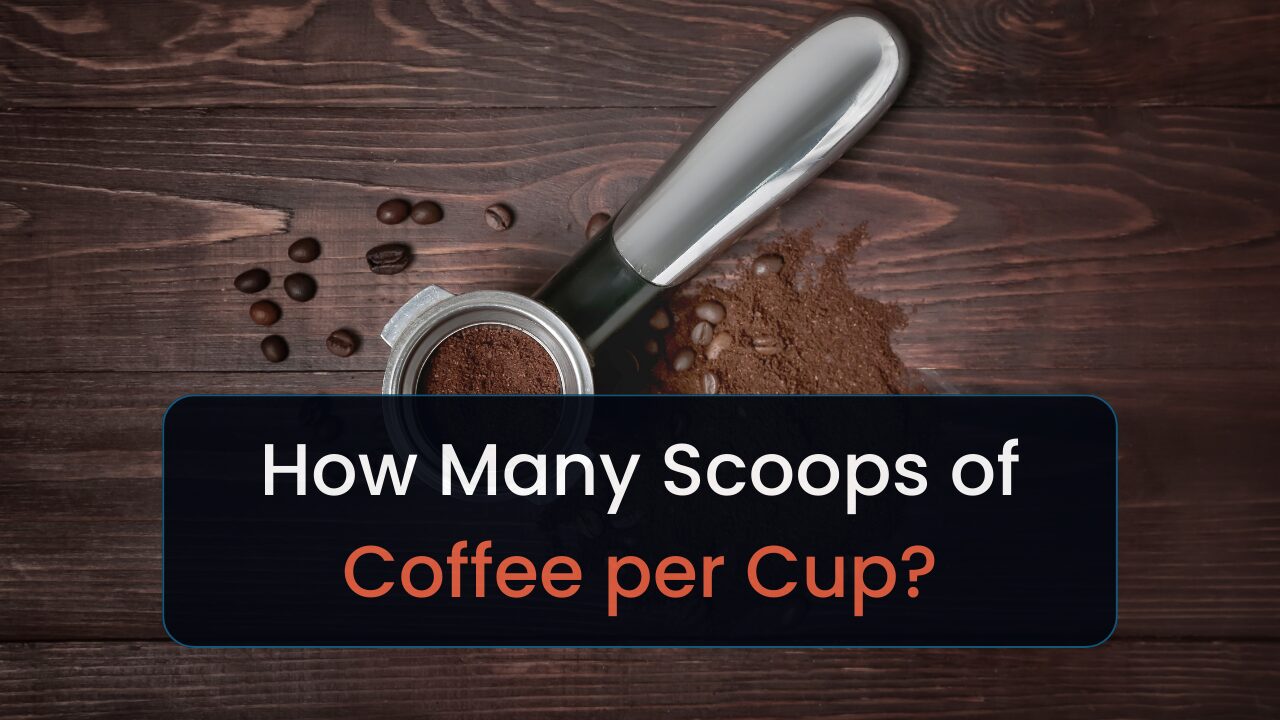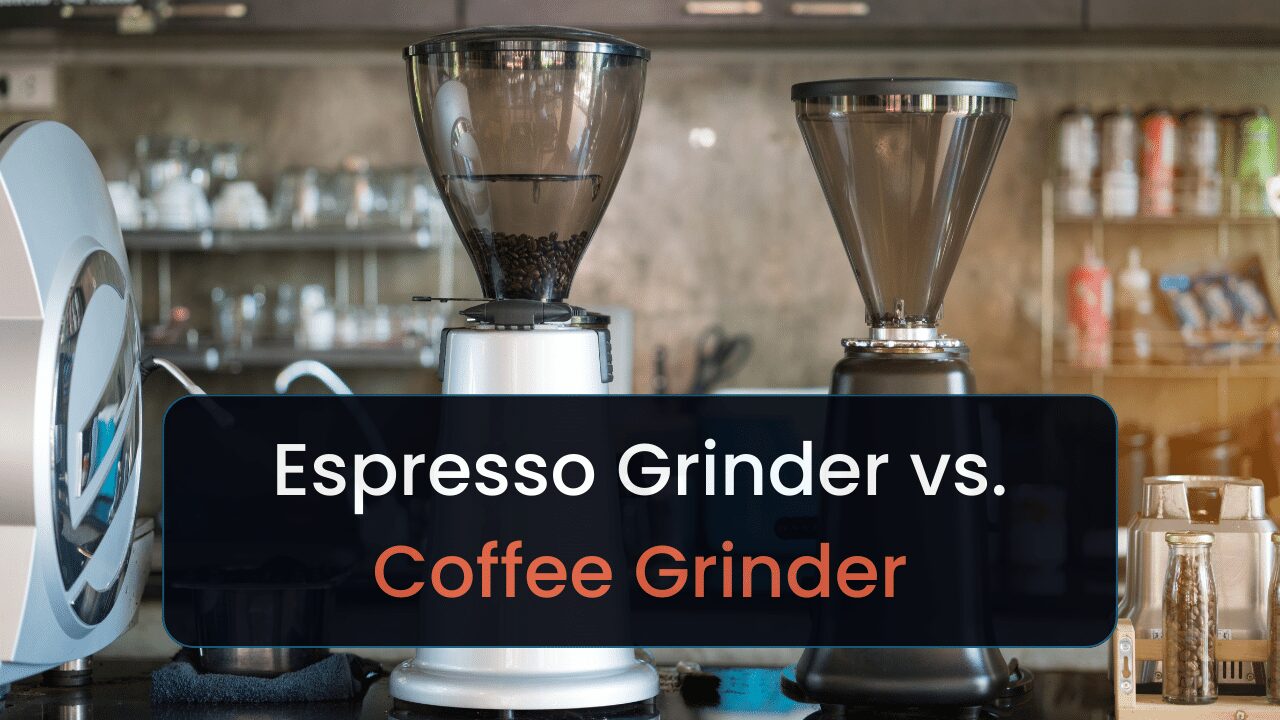After hours of research, I have now created this extensive list of the different types of coffees and their calories.
And without further ado, let’s get into it.
Key Takeaways
- Caloric Variety: The calorie content in coffee varies significantly, ranging from almost zero in a cup of black coffee to several hundred in more indulgent options like mochas or frappes.
- Additives Matter: The addition of milk, sugar, cream, and other flavorings can considerably increase the calorie count in your coffee.
- Size Counts: The size of your coffee serving impacts the total calorie content. Bigger cups mean more calories.
- Informed Choices: Awareness of the calorie content in different coffee types and servings can aid in making healthier lifestyle decisions, especially for those managing weight or health concerns.
How Many Calories Are in Your Cup Of Coffee?
This depends on what type of coffee you have. Here is an overview of some of the types:
| Number* | Type | Calories** |
| 1 | Black coffee | 0 |
| 2 | Espresso | 5 |
| 3 | Americano | 5-10 |
| 4 | Coffee with Milk | 35-40 |
| 5 | Coffee with Sugar | 15-20 |
| 6 | Coffee with Milk and Sugar | 50-60 |
| 7 | Piccolo Latte | 40-50 |
| 8 | Long black coffee | 5-10 |
| 9 | Cappuccino | 60-80 |
| 10 | Latte | 100-150 |
| 11 | Macchiato | 20-30 |
| 12 | Mocha | 200-250 |
| 13 | Frappe | 200-500 |
| 14 | Cold Brew Coffee | 5-10 |
| 15 | Cortado | 60-70 |
| 16 | Long Macchiato | 60-70 |
| 17 | Bulletproof Coffee | 230-260 |
| 18 | Black Eye | 5-10 |
| 19 | Guillermo | 10-20 |
| 20 | Rápido y Sucio | 70-100 |
| 21 | Galão | 100-150 |
| 22 | Café Crema | 5 |
| 23 | Dripped Eye | 5-10 |
| 24 | Irish Coffee | 150-250 |
| 25 | Freddo Cappuccino | 80-100 |
| 26 | Flat White | 120-170 |
| 27 | Café Medici | 150-200 |
| 28 | Affogato al Caffe | 100-200 |
| 29 | Café Breve | 100-200 |
| 30 | Lazy Eye | 10-15 |
| 31 | Vienna Coffee | 10-15 |
| 32 | Cubano | 30-50 |
| 33 | Manilo Long Black | 5-10 |
| 34 | Zorro | 5-10 |
| 35 | Red Eye | 5-10 |
| 36 | Espresso Romano | 5-10 |
| 37 | Marocchino | 40-60 |
* Read more about the coffee in the list below (what it is and how much coffee are these calories)
** This will depend on the amount and is only an estimate. If you have sugar or fattier milk this will be higher.
Types Of Coffee – What It Is & Their Calories
- Black coffee: Virtually no calories. A cup of black coffee has less than 5 calories and no fat.
- Espresso: A single shot of espresso has about 5 calories.
- Americano: Around 5-10 calories, as it is essentially a shot or two of espresso diluted with hot water.
- Coffee with Milk (4 tablespoons of whole milk): 35-40 calories
- Coffee with Sugar (1 teaspoon of sugar): 15-20 calories
- Coffee with Milk and Sugar (8 oz, with 4 tablespoons of whole milk and 1 teaspoon of sugar): 50-60 calories
- Piccolo Latte: 40-50 calories. A Piccolo Latte is a small coffee drink that contains a shot of espresso topped off with steamed milk, served in a small glass or cup, usually around 3 to 4 ounces in total. It’s similar to a cortado or a mini latte.
- Long black coffee: This is essentially a shot or two of espresso added to hot water, and contains around 5-10 calories. This is because it’s made solely from water and roasted coffee beans
- Cappuccino: A small, 6-ounce cappuccino typically has about 60-80 calories when made with whole milk.
- Latte: A small, 8-ounce latte typically has around 100-150 calories when made with whole milk.
- Macchiato: A single-shot macchiato (an espresso with a small amount of milk foam) has around 20-30 calories.
- Mocha: A small, 8-ounce mocha (espresso, steamed milk, and chocolate syrup) typically has around 200-250 calories when made with whole milk and whipped cream.
- Frappe: A 16-ounce frappe can contain anywhere from 200 to 500 calories depending on the ingredients used, such as cream, sugar, flavored syrups, and ice cream.
- Cold Brew Coffee: Plain cold brew coffee has around 5-10 calories per 8-ounce serving, similar to black coffee.
- Cortado: Around 60-70 calories. A cortado is equal parts espresso and warm milk.
- Long Macchiato: Similar to a cortado, so around 60-70 calories.
- Bulletproof Coffee: Bulletproof coffee (coffee with added butter and MCT oil) is high in calories. A typical cup can contain around 230-260 calories.
- Black Eye: This is drip coffee with a shot of espresso added. Assuming no additives, it’s around 5-10 calories.
- Guillermo: Two shots of hot espresso poured over slices of lime. It should be around 10-20 calories.
- Rápido y Sucio: This is a “quick and dirty” coffee, usually an espresso shot with condensed milk. The calorie content will largely depend on the amount of condensed milk used, but it could be 70-100 calories.
- Galão: A Portuguese drink similar to a latte or cappuccino, typically served in a tall glass. Expect about 100-150 calories.
- Café Crema: This is essentially an espresso shot, so around 5 calories.
- Dripped Eye: Similar to a Black Eye, but using drip coffee instead of espresso. It should have around 5-10 calories.
- Irish Coffee: This is coffee combined with whiskey, sugar, and topped with cream, so it can vary quite a bit, but expect it to be in the range of 150-250 calories.
- Freddo Cappuccino: A cold version of the cappuccino, served with cold frothed milk on top and iced espresso. This will likely be around 80-100 calories.
- Flat White: A flat white (espresso with steamed milk) has around 120-170 calories for a 8-ounce serving.
- Café Medici: A doppio poured over chocolate syrup and orange peel, usually topped with whipped cream. Depending on how much whipped cream is used, this could be around 150-200 calories.
- Affogato al Caffe: A scoop of vanilla gelato or ice cream “drowned” with a shot of hot espresso. The calorie content would vary greatly depending on the ice cream used, but it would likely be around 100-200 calories.
- Café Breve: This is a type of cappuccino made with half-and-half instead of whole milk, so it would likely have more calories, around 100-200 depending on the size.
- Lazy Eye: Similar to a Red Eye, but with two shots of espresso, so around 10-15 calories.
- Vienna Coffee: Made by adding two shots of particularly strong espresso together before whipped cream is added as a substitute for milk and sugar. The calories could range from 100-200 calories.
- Cubano: An espresso shot sweetened with demerara sugar as it is being brewed. The calories are likely around 30-50 dependingon the amount of sugar used.
- Manilo Long Black: Similar to an Americano but the water is added first and then espresso is poured on top, keeping the crema on top intact. So it’s around 5-10 calories.
- Zorro: Equal parts espresso and hot water, so around 5-10 calories, similar to an Americano.
- Red Eye: A cup of regular brewed coffee with a shot of espresso added, so around 5-10 calories.
- Espresso Romano: A shot of espresso served with a slice of lemon on the side. The lemon is often run along the rim of the cup to accentuate the sweet flavors of the espresso. It’s around 5-10 calories.
- Marocchino: A shot of espresso, a layer of foam, and a sprinkle of cacao in a small glass. The calorie content would depend on the amount of foam and cocoa, but expect it to be around 40-60 calories.
Again, these are approximations and will vary based on size, the specific ingredients used, and how much of each ingredient is used.
If you’re concerned about calories, the best approach is to inquire at the specific coffee shop or check the nutritional information if it’s available.
What Adds Calories to Your Coffee?
If you’re watching your calorie intake, the best way to enjoy coffee is to drink it black.
If that’s not to your liking, consider using low-fat milk and a natural sweetener like Stevia, which has fewer calories than sugar.
Also, be mindful of the size of your coffee and try to limit any high-calorie add-ins.
Several factors can increase the calorie content of your coffee:
1. Milk and Cream
Adding milk or cream to your coffee can significantly increase the calorie content. The specific type and amount of milk or cream you use will determine the number of extra calories. For example, whole milk has more calories than skim milk, and heavy cream has even more.
- Whole Milk: Adding one tablespoon of whole milk to your coffee adds about 9 calories. If you use a cup (around 16 tablespoons) for a milk-based coffee drink like a latte, that’s approximately 144 calories. [1]
- 2% Milk: One tablespoon of 2% milk adds about 7 calories. A cup for a milk-based drink would add about 112 calories.
- 1% Milk: One tablespoon of 1% milk adds about 5 calories. Using a cup in a milk-based coffee drink would be about 80 calories. [2]
- Skim Milk (Non-fat): One tablespoon of skim milk has about 3 calories. If you use a cup for a latte or similar drink, you’re looking at about 48 calories.
- Heavy Cream: One tablespoon of heavy cream in your coffee adds about 52 calories. A cup would contain a whopping 832 calories – a significant addition to your daily calorie intake!
- Half-and-half: One tablespoon of half-and-half, a mixture of cream and milk, contains about 20 calories. A cup adds about 320 calories to your drink.
2. Sugar
- White Sugar: One teaspoon of white sugar adds about 16 calories. If you add two teaspoons to your morning coffee and have three cups a day, that’s an extra 96 calories.
- Brown Sugar: One teaspoon of brown sugar contains about 17 calories. If you add two teaspoons per cup and consume three cups a day, you’re consuming an additional 102 calories daily. [3]
- Raw Sugar (Turbinado Sugar): One teaspoon contains about 18 calories. If you’re adding two teaspoons per cup and drinking three cups a day, that’s an extra 108 calories.
- Honey: One teaspoon of honey has about 21 calories. If you use two teaspoons per cup, three times a day, you’ll add an extra 126 calories. [4]
- Agave Syrup: One teaspoon of agave syrup has about 21 calories. Using two teaspoons per cup, three times a day, you’re looking at an additional 126 calories.
- Maple Syrup: One teaspoon of maple syrup contains about 17 calories. Using two teaspoons per cup, three times a day, you’re adding an extra 102 calories. [5]
3. Flavored Syrups
Syrups like vanilla, caramel, or hazelnut add flavor to your coffee, but they also add calories. These syrups are typically sugar-based, and a single pump can add around 20 calories to your coffee.
4. Whipped Cream
Adding whipped cream to your coffee can add a significant number of calories. A dollop of whipped cream can add around 50 to 100 calories.
5. Flavored Coffees
Some types of coffee, like mochas or lattes, contain milk and sugar by default, making them higher in calories. Similarly, flavored coffee beans may have additional oils or flavoring agents that can increase the calorie content.
6. Size of the Serving
A larger cup of coffee will likely contain more milk, sugar, or other add-ins, leading to a higher calorie content.
How to Make Your Coffee Habit Healthier?
Coffee itself has many potential health benefits, including providing antioxidants, reducing the risk of several types of disease, and potentially boosting mental and physical performance.
However, depending on how you take your coffee, it can also contribute to excess calorie consumption and other health issues. Here are some tips to make your coffee habit healthier:
Minimize Added Sugars: Adding a lot of sugar to your coffee can turn a virtually calorie-free beverage into a sugary drink.
High sugar intake is linked with increased risks of obesity, type 2 diabetes, and heart disease. Try reducing the amount of sugar you add gradually to help your taste buds adjust.
- Choose a Healthier Creamer: Regular creamers can be high in sugar and unhealthy fats. Opt for plant-based or low-fat creamers, and try to use them sparingly.
- Try Drinking It Black: The healthiest way to drink coffee is black without any additives. It might take some time to get used to the taste, but you can gradually reduce the amount of milk, cream, and sugar you add over time until you get used to the flavor of black coffee.
- Mind the Size of Your Serving: Be mindful of your portion sizes, especially when ordering from a coffee shop. Large servings often contain more sugar and fat.
- Limit Flavored Syrups and Whipped Cream: These add-ons can quickly add calories and sugar to your coffee. Choose plain coffee when possible, or use natural flavorings like a sprinkle of cinnamon or unsweetened cocoa powder.
- Watch Out for Caffeine Intake: While coffee can have several health benefits, too much caffeine can lead to restlessness, anxiety, heart palpitations, and can interfere with sleep. Aim to limit your caffeine intake to the recommended limit of around 400 mg per day — about 3-4 cups of regular brewed coffee.
- Stay Hydrated: Coffee has a diuretic effect, which means it can lead to increased urination. This can cause dehydration if you’re not consuming enough fluids. Make sure to drink plenty of water throughout the day to stay hydrated.
- Consider Timing: Drinking coffee late in the day can interfere with sleep. If you’re sensitive to caffeine, consider having your last cup of coffee early in the afternoon to ensure it doesn’t disrupt your sleep.
- Use a Quality Filter: If you’re brewing coffee at home, using a paper filter can help to remove substances in coffee that can increase cholesterol levels.
By keeping these tips in mind, you can enjoy your daily coffee while also maintaining a healthy lifestyle.
Can Coffee Help You Lose Weight?
Coffee might aid in weight loss in several ways: [6]
- Increased Metabolism: The caffeine found in coffee can help boost your metabolism, potentially helping you burn more calories.
- Appetite Suppression: Some people may find that drinking coffee suppresses their appetite, leading to less calorie intake. However, the evidence is mixed, and it may not have the same effect on everyone.
- Enhanced Physical Performance: Caffeine can stimulate the nervous system, which sends direct signals to fat cells to break down fat. It also increases adrenaline levels in your blood, which are hormones that help your body break down fats and prepare them for use as fuel. This can enhance physical performance and make your workout more effective.
- Boosts Energy Levels: Drinking coffee can increase alertness and fight fatigue, helping you to keep active and burn more calories.
However, it’s important to note that while coffee might provide these potential weight-loss benefits, it’s not a magic solution for weight loss and should be part of an overall healthy diet and exercise routine.
Also, while a moderate intake of coffee is generally safe, consuming too much caffeine can lead to side effects such as insomnia, jitters, increased heart rate, and upset stomach.
Finally, remember that the extras often added to coffee such as cream, sugar, and other sweeteners can add many calories and may counteract any benefits.
For sustainable weight loss, focus on consuming a balanced diet, maintaining a calorie deficit, and engaging in regular physical activity. If you enjoy coffee, it’s fine to incorporate it into your weight-loss diet as long as you’re mindful of your overall calorie intake.
Conclusion
Understanding the calorie content of your coffee can be essential, especially if you’re monitoring your intake for weight management or health reasons.
Depending on the type of coffee and the additives you choose, the caloric value can range drastically. For instance, a simple cup of black coffee has almost no calories, while milk and sugar can substantially increase the count.
Options like lattes, mochas, and frappes can even climb up to several hundred calories due to their milk, sugar, and sometimes whipped cream content.
Being aware of these values helps make more informed choices about your coffee consumption, ultimately aiding in a healthier lifestyle.
Want to learn more? Read our article on how much caffeine is in a cup of coffee.






